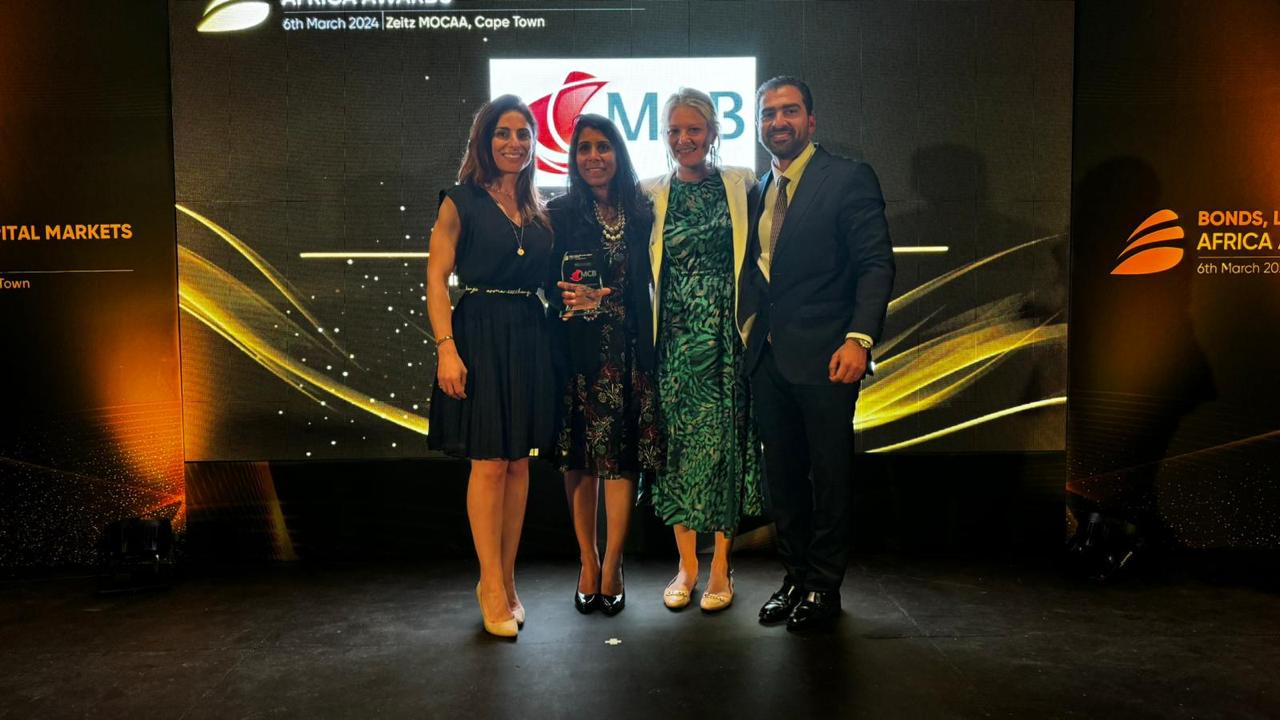- Home
- Investor Centre
- Sustainability
- Talent
- News
- TH!NK
- Corporate Governance
- Company Profile
- Board of Directors
- Community
Contact Info
Alternative financing: Options you didn’t know you had

Looking for working capital or Capex finance for your business but you don’t have collateral? Don’t worry, MCB SME Banking offers alternative methods of financing, tailored for your needs .
So what is it going to be? A loan or an overdraft? You’ve probably asked yourself this question many times over during the course of your trade, as you find yourself making important decisions for the development of your business.
But if you’re a Small and Medium entrepreneur, chances are, you do not have the required security to be eligible for a loan, an overdraft or an import line. This, however, doesn’t need to become a spanner in the works because “there are alternative ways of obtaining finance than through a loan or an overdraft”, says Harry Coolen, MCB’s Business Banking Manager, SME Banking.
“People generally have this tendency to think only in terms of overdrafts or loans when they need capital but this can represent an obstacle for SMEs because they don’t necessarily have collateral. That’s why we’ve adapted our offering so that not having security needs not be the factor that hinders the growth of SMEs”, Harry explains.
He adds that MCB Business Banking, SME Banking, currently offers three types of financing services that don’t require collateral. These are factoring, leasing and equity.
Factoring
Factoring services is an alternative mode of working capital finance that MCB offers as a service. Here’s how it works: if you need money for whatever purpose — let’s say to import goods -, but you don’t have the cash flow because you’re still owed money (and you don’t have collateral, meaning that you’ll not get a loan or an overdraft or an import line), MCB Business Banking will look at your books.
“If your debtors are known to MCB, then we will take their risks”, Harry explains. What will happen is that Business Banking will refer you to MCB Factors who will then take ownership of your debtor’s book.
“This actually means that we are the ones that will be collecting the money directly from your debtors on a date set by you. More importantly, we will advance you money on those bills of up to 80%.”
It is possible for this “money” or “loan” to be unsecured because the factoring services are insured.
That sounds like a good deal, doesn’t it? And yet, Harry says that although the service is very popular, it’s mostly used … by corporates!
The reason is that generally SMEs tend to think that their debtors — generally bigger companies- might get “offended” by the fact that they’ve transferred the debt to MCB.
“SMEs certainly feel that they might lose the custom of those big companies, in part because of the element of flexibility in debts owed to a small business that might not be there when the debt is actually owed to the bank”, Harry posits.
“That’s why we’ve become more flexible with regards to the timing of repayment. We don’t set the timeframe, the client does. More flexibility means that this should no longer be a problem,” the Business Banking Manager reckons.
More info on MCB Factors here.
Leasing
Now, let’s say you need to purchase some heavy duty equipment, a vehicle or any type of fixed asset but your situation doesn’t allow for a secured loan. Then you need an alternative mode of Capex financing (capital for fixed assets, including machinery, trucks, JCBs etc). If you’re in that category, MCB SME Banking will refer you to Finlease. The next step will see the financing of the equipment, machinery or vehicle by Finlease, for up to 80%.
“The equipment itself will become the security while Finlease becomes the lessor and you become the lessee. Once you’ve repaid Finlease, the equipment, machinery or vehicle is transferred to your name”, Harry explains.
He adds that many big companies take advantage of that offer, for instance, most of the machinery found in textile factories are bought through leasing. “This is an offer that would benefit SMEs with limited access to finance and who have no security.”
More info on MCB Leasing here.
Equity finance
From another angle, if you need to raise capital to finance a project or an investment and you don’t have the financial capacity to contract a loan for the full amount? Well, there’s also an alternative method of doing that.
“Let’s say that a project will cost Rs20 m and that a client is unable to repay a loan of that amount. It doesn’t have to a showstopper. We can offer you a mix of loan, based on your repayment capacity and equity finance”, Harry affirms. He further explains that “equity financing is about capital — you don’t contract a loan; you contract an equity finance”.
Put simply, it means that you sell part of your shares — for a time -, to the SME Equity fund. It’s a government-owned Fund with which MCB has a close working relationship. The Fund assesses your project and if your request goes through, it becomes an equity partner in your company by buying preference shares. They will be held for a specific period while the Equity fund gives you the assistance you need. Once they have recovered their investment through dividends, they will sell it back to you.
“Obviously, people can contact the Equity fund directly but when we refer our clients to the fund, its gives the Fund additional comfort because generally it’s a mix of loan and equity. This means that if MCB has approved the loan facility (based on your repayment capacity), we’re happy with the project and hence, the Fund is taking the risk jointly with the bank”.
If this sounds like a truly innovative and risk-free way of raising capital, then why don’t more SMEs take advantage of this facility?
It seems it’s because it has to do with the very nature of SMEs. “Those are businesses that have been built from scratch by their owners and they generally tend to feel protective of their businesses. They tend to be suspicious if a third party besides the bank, is involved”, Harry explains.
But he hastens to reassure entrepreneurs.
“I know some of you mistrust the notion of government or third-party involvement in your business, the loss of control that may arise but this is only a perception. The Equity fund will not take over your business; it’s about partnership and collaboration. They will not come to your office every day and meddle in your affairs. On the contrary, they will help you become more efficient”, he proffers.
Harry is adamant:
“It’s a good way to raise finance. If you can’t afford to finance your project 100% through a bank loan, you can still manage to reach your goal through equity finance. It really is at no risk to your business. If anything, it will help you be more structured”.
Your Relationship Executive will be more than happy to discuss any of those options further with you!
Subscribe to our Email Alerts
Stay up-to-date with our latest releases delivered straight to your inbox.
Contact
Don't hesitate to contact us for additional info
Email alerts
Keep abreast of our financial updates.














